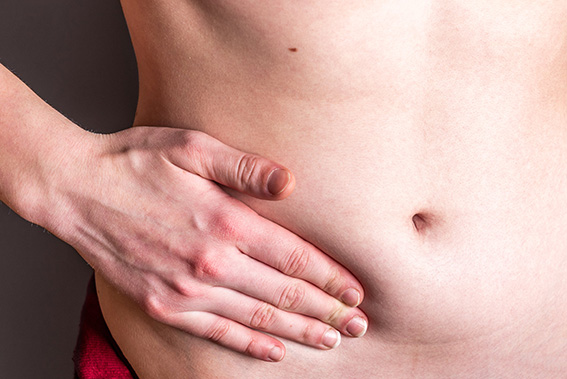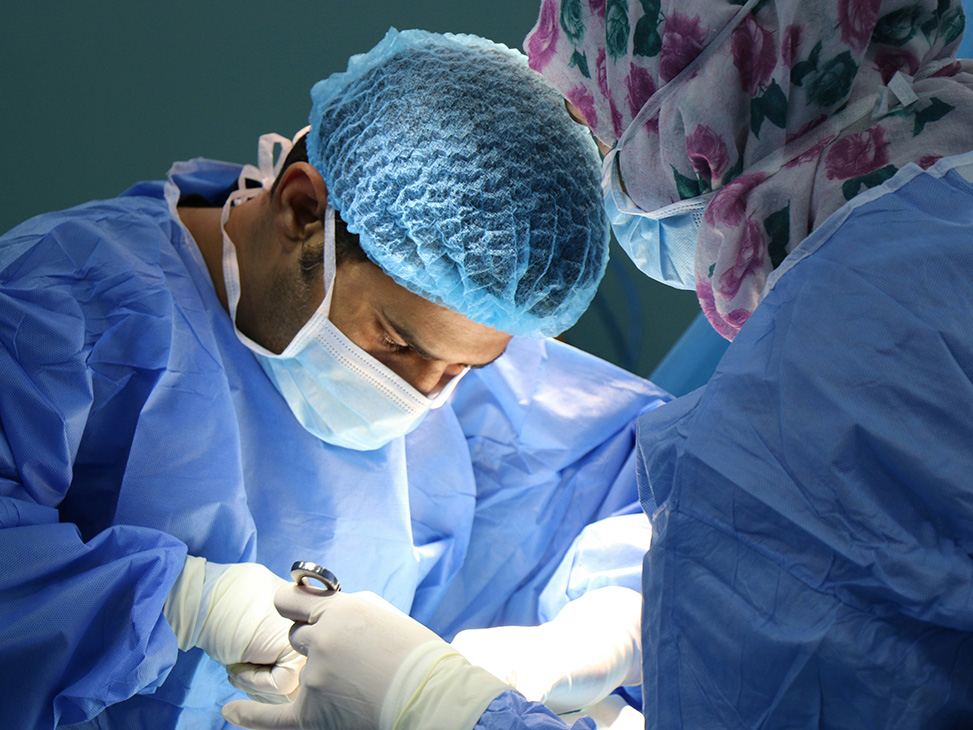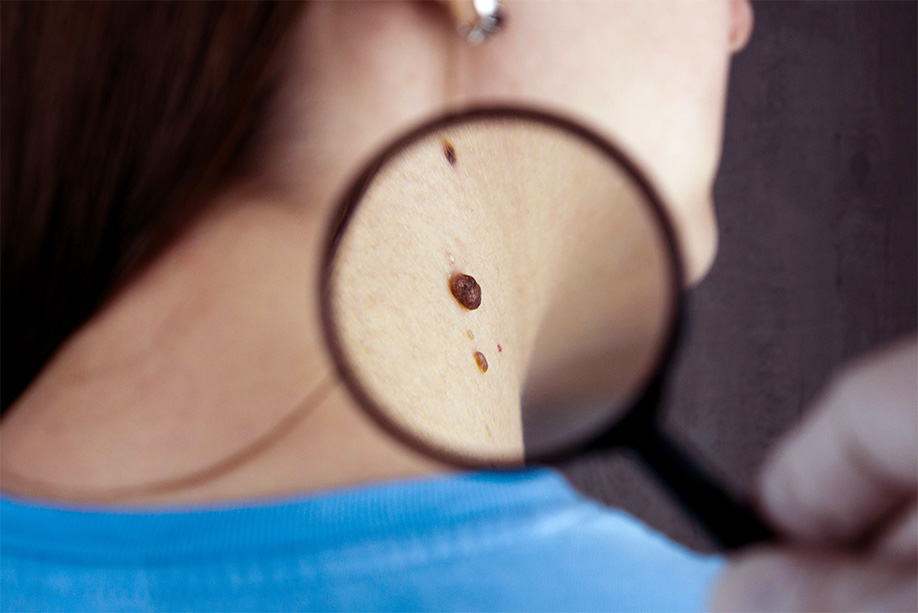Home / Surgical Solutions / Hernia Repair

A hernia takes place after a body part or an internal organ pushes through a loose or weak area in the tissue or muscle that houses it. Hernias are known to occur most commonly between the hips and the chest.
Femoral, as well as inguinal hernias take place as a result of weakness in muscles. These muscles could have been weak since one was born or decreased in strength are as one aged and they are continually strained in areas around the groin and abdomen. Factors that could be responsible for this strain include constipation, coughing frequently, pregnancy, obesity, or physical exertion. When adults have their abdominal area strained, go through childbirth, cough heavily for a long time, or are overweight, they may develop an umbilical hernia.
The reason for hiatal hernias is not absolutely clear. However, the weakening of the diaphragm due to abdominal pressure or age could be a major factor.
Femoral or inguinal hernias make up about 75 -80% of all hernias. Ventral or incisional make up 2% and umbilical make up 3-10%.
Umbilical hernias has its effect on 10-20% of babies. A good number of them are known to close up on their own when the child is up to 5 years old.
When there is a hernia in the groin or abdomen, there could be a visible bulge or lump. This lump can become unnoticable when one is lying down. Also, it can be pushed back. When one strains while movement in the bowel is ongoing, while taking part in physical activities, while coughing, crying, or laughing, the lump could surface again even after its been pushed in.
Other signs that one could be dealing with a hernia are:
When people are suffering from hiatal hernias, there are no visible bulges. However, they may experience symptoms such as chest pain, continuous regurgitation, issues with swallowing, indigestion, and heartburn.
Physical examination can help you feel or spot a part of the body where a hernia has taken place. When looking out for inguinal hernias, a doctor examines the groin and surrounding areas. Also, they tell the person being examined to cough. Other times, CT scan and other soft-tissue imaging can help in diagnosing the condition accurately.
If you suspect you may have a hernia, you should not hesitate getting help. The only time a hernia disappears by itself is in umbilical hernias in children. When left untreated, a hernia will most likely not get better. With time, a hernia could become bigger and more painful. Also, the likelihood of complications in more significantly increased. Repairing a hernia early is generally more successful. This is in addition to the fact that you tend to recover better.
The first step on treating hernia is to pay a visit to your GP. If a surgical process will be needed for the hernia to be fixed, your primary care giver will recommend a general surgeon.
There are pros and cons with each approach. The surgeon is in the position to decide the most appropriate approach for every situation.
Some of the complications that could result from femoral or inguinal hernia when left untreated are:
To prevent hernia it is recommended you:
After your procedure, you’ll be escorted to a private recovery suite. Your Patient Care Coordinator and nursing team will be by your side, monitoring your progress and ensuring your initial recovery is as smooth and reassuring as possible.
Following your procedure you will receive post operative instructions. These instructions include taking care of the site of incision, the right diet to feed on, and how to prevent physical strain.
Hernias may take place again irrespective of repair. This could happen because of protracted healing or weakness in tissue. Obesity, as well as smoking could also cause hernia to reoccur.
Cosmedicare’s surgical team consists of highly trained, GMC-registered specialist surgeons with expertise in cosmetic, reconstructive, and gender-affirming surgery. They bring decades of experience and a commitment to delivering personalised care and exceptional results.
Our team of expert surgeons provide personalised, safe surgical treatments across a full range of procedures. Every experience is tailored to your individual needs.

Whether you’re considering cosmetic surgery, weight loss surgery, or any surgical procedure — one of the most important decisions you’ll

Hernias are more common than you might think — and when left untreated, they can become painful, uncomfortable, and even

Skin cancer is a serious condition characterised by the abnormal growth of skin cells. It is primarily caused by damage
Website by Creo Design, part of The Solutions on Demand Group